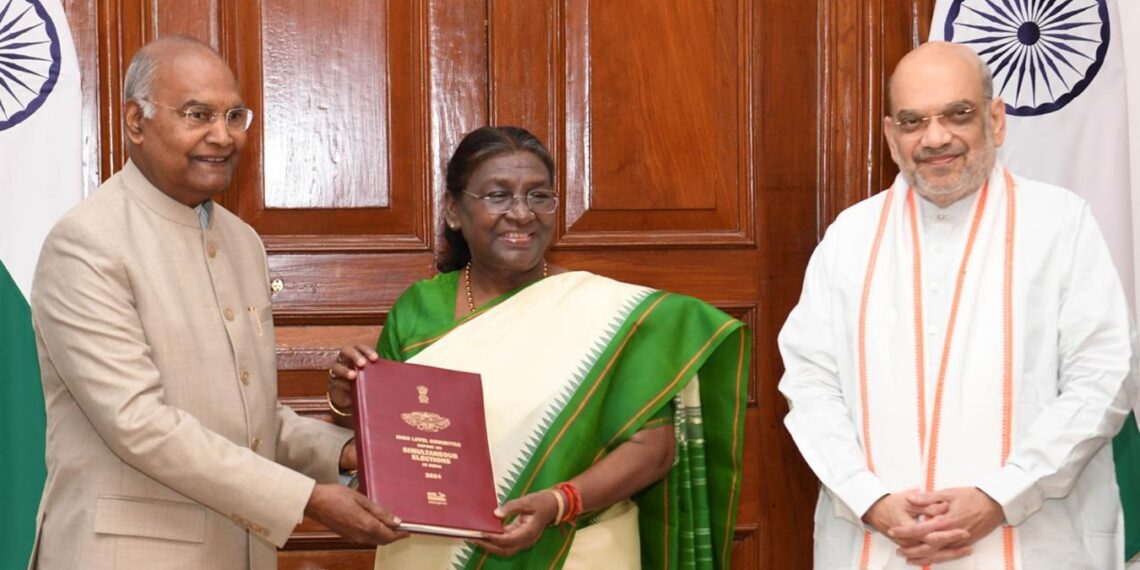The panel on the concept of “One Nation, One Election”, led by former President Ram Nath Kovind, submitted its report to President Droupadi Murmu advocating for simultaneous general and assembly elections.
Advocating for simultaneous polls, the Kovind panel outlined a two-phase approach to implement three-tier simultaneous polls. The first phase entails conducting Lok Sabha and assembly elections concurrently, followed by local body polls within 100 days in the second phase.
The report also underscored the adverse impact of the discontinuation of simultaneous elections post-independence, highlighting its damaging effects on the nation’s economy, polity, and society.
Weighing on the necessity for constitutional amendments, the panel proposed revising at least five articles of the Constitution to facilitate synchronised elections nationwide.
Specifically, amendments to Article 83 (duration of Houses of Parliament) and Article 172 (duration of state legislatures) were deemed essential.
Additionally, the panel recommended the establishment of an “Implementation Group” tasked with overseeing the execution of the report’s recommendations.
Moreover, the panel advised the Election Commission of India (ECI) to collaborate with state election authorities in preparing a common electoral roll and issuing voter ID cards to streamline the electoral process.
In tandem with these developments, emerging reports from the national press indicate that the Law Commission is also poised to release its own report on simultaneous elections, an idea strongly endorsed by Prime Minister Narendra Modi.
Speculations suggest that the Law Commission’s report may propose simultaneous polls for all three tiers of government—Lok Sabha, state assemblies, and local bodies—commencing with 2029.
Furthermore, provisions for a unity government in scenarios such as a hung house or a no-confidence motion, are anticipated to be included in the recommendations.















